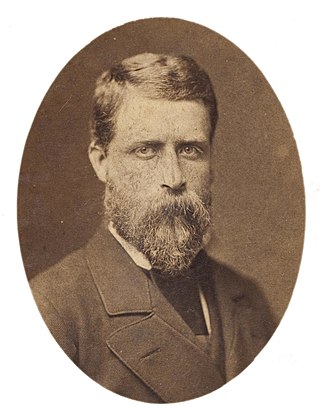
David Gaunson was an Australian politician and criminal solicitor who conducted the defence of the infamous Australian bushranger, Ned Kelly in the pre-trial stages.
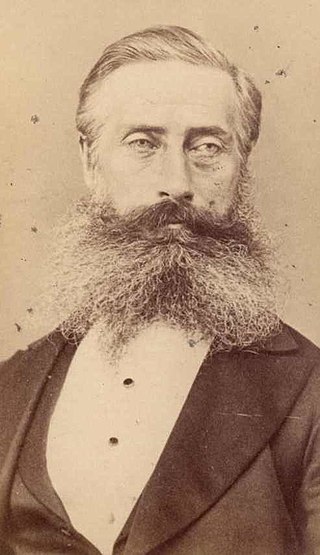
Sir Graham Berry,, was an Australian colonial politician and the 11th Premier of Victoria. He was one of the most radical and colourful figures in the politics of colonial Victoria, and made the most determined efforts to break the power of the Victorian Legislative Council, the stronghold of the landowning class.
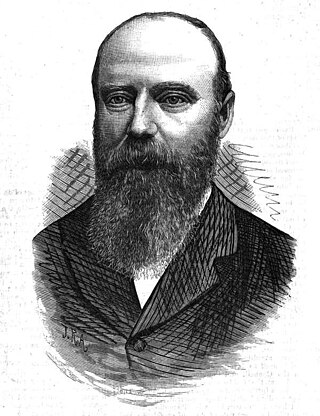
Sir Bryan O'Loghlen, 3rd Baronet, Australian colonial politician, was the 13th Premier of Victoria.
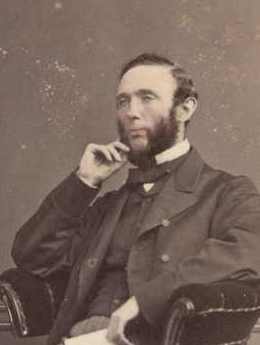
James Service, an Australian colonial politician, was the 12th premier of Victoria, Australia.

Sir Thomas Bent was an Australian politician and the 22nd premier of Victoria.
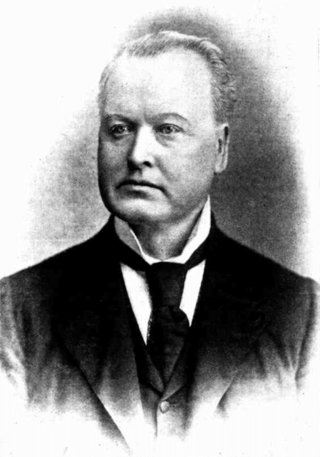
Duncan Gillies, was an Australian colonial politician who served as the 14th Premier of Victoria.

William Shiels was an Australian colonial-era politician, serving as the 16th Premier of Victoria.

Sir James Brown Patterson, was an Australian politician who served as premier of Victoria from 1893 to 1894.

Sir Alexander James Peacock was an Australian politician who served as the 20th Premier of Victoria.
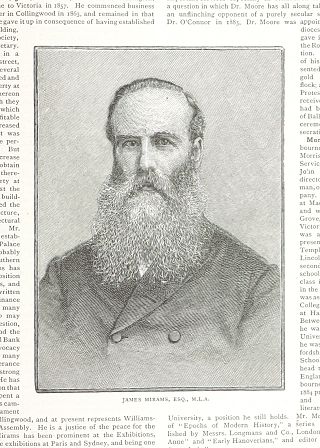
James Mirams was an Australian businessman and politician who was jailed for fraud.
James Howlin Graves was an Australian politician, member of the Victorian Legislative Assembly 1877 to 1900 and 1902 to 1904.

Robert Murray Smith, usually known as Murray Smith, CMG MA, was a member of the Victorian Legislative Assembly and Agent-General for Victoria (Australia).
The Liberal Party, often known simply as the Liberals, was the name used by a number of political groupings and parties in the Victorian Parliament from the late 19th century until around 1917.

The 1877 Victorian colonial election was held on 11 May 1877 to elect the 9th Parliament of Victoria. It was the first election in Victoria in which all electorates voted on the same day. All 86 seats in 55 electorates in the Legislative Assembly were up for election, though four seats were uncontested.

The February 1880 Victorian colonial election was held on 28 February 1880 to elect the 10th Parliament of Victoria. All 86 seats in 55 electorates in the Legislative Assembly were up for election, though two seats were uncontested.

The July 1880 Victorian colonial election was held on 14 July 1880 to elect the 11th Parliament of Victoria. All 86 seats in 55 electorates in the Legislative Assembly were up for election, though eight seats were uncontested.

The 1886 Victorian colonial election was held on 22 February 1883 to elect the 13th Parliament of Victoria. All 86 seats in 55 electorates in the Legislative Assembly were up for election, though eleven seats were uncontested.

The 1874 Victorian colonial election was held from 25 March to 22 April 1874 to elect the 8th Parliament of Victoria. All 78 seats in 49 electorates in the Legislative Assembly were up for election, though eleven seats were uncontested.

The 1871 Victorian colonial election was held from 14 February to 16 March 1871 to elect the 7th Parliament of Victoria. All 78 seats in 49 electorates in the Legislative Assembly were up for election, though six seats were uncontested.

The 1868 Victorian colonial election was held from 21 January to 20 February 1868 to elect the 6th Parliament of Victoria. All 78 seats in 49 electorates in the Legislative Assembly were up for election, though seven seats were uncontested.














